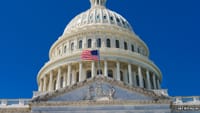Stop overpaying - start transferring money with Ogvio. Sign up, invite friends & grab Rewards now! 🎁
Sky, Formerly Maker, Faces Backlash Over Freeze Feature in Rebranded Stablecoin
Key Takeaways
- Sky's new USDS stablecoin faces scrutiny over a potential freeze function, sparking concerns about decentralization;
- CEO Rune Christensen clarified that DAI will remain unaffected and that the freeze function won't be active at launch but could be introduced later through governance;
- The DeFi community also criticizes Sky for blocking VPN access, with some arguing it's necessary for USDS to be backed by US Treasuries.
Sky, formerly known as MakerDAO, is under scrutiny for the potential "freeze function" of its newly rebranded stablecoin, USDS.
This feature would allow the issuer to freeze the stablecoin, raising worries this could compromise the project's decentralized nature.
Responding to the concerns, Rune Christensen, CEO and co-founder of Sky, clarified in an X post on August 27 that USDS will not include a freeze function at launch. He explained that it only consists of an upgrade capability, which governance could use later to introduce a freeze function if necessary.

Did you know?
Subscribe - We publish new crypto explainer videos every week!
What is Cardano in Crypto? (Easily Explained!)


Back in May, Christensen mentioned in a forum post:
The future freeze function is generally expected to follow rule of law from jurisdictions where Maker needs a high level of certainty that the legal system will enforce recourse against RWA collateral. This will result in a much greater level of security, stability and reliability of using large scale RWA collateral for NewStable as it scales to global mass market adoption.
Further addressing the confusion, Christensen clarified that the changes won't affect DAI and that upgrading to USDS is optional. The freeze function, if introduced, would only apply to USDS, not DAI.
Another aspect of the rebranding criticized by the decentralized finance (DeFi) community is the new restriction that blocks access to Sky's website through VPNs.
Adam Cochran, a partner at Cinneamhain Ventures, weighed in on the matter, arguing that both the freeze function and the VPN jurisdiction blocker are essential if USDS is to be backed by US Treasuries. He also commented:
You can't reap the benefits of the US TradFi system without its rule set. You're either decentralized and on your own, or you adopt the Treasury Department's stick to get their carrot.
As MakerDAO rebranded to Sky, the project introduced the SKY native governance token, replacing the previous MKR token, and rebranded its stablecoin DAI to USDS. As the DeFi community grapples with these changes, the discussion on the trade-offs between decentralization and regulatory compliance continues.
Centralized stablecoins like Tether also possess a freeze capability; in April, Tether froze wallets that had been used to bypass US sanctions on Venezuelan oil exports.






















